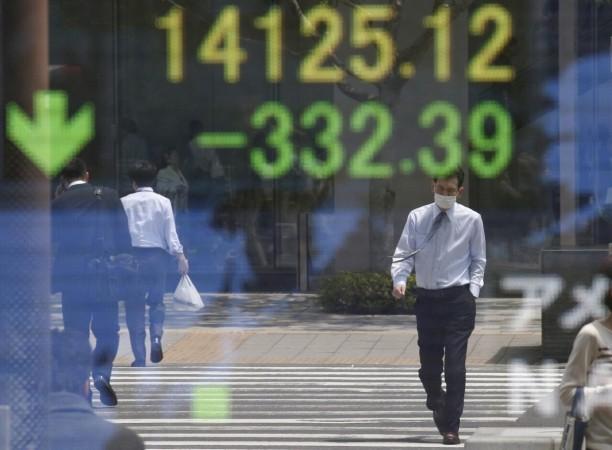
Asian shares struggled to muster gains on Tuesday, while the dollar inched higher but remained not far from its lowest level against the yen in more than three months.
MSCI's broadest index of Asia-Pacific shares outside Japan slipped about 0.1 percent. But Japan's benchmark Nikkei stock average bucked the downtrend and tracked overnight gains on Wall Street, adding 0.9 percent and breaking a four-session losing streak.
Asian investors continued to monitor developments in Thailand, following news the army had declared martial law after six months of anti-government protests. The SET index pared early losses but was still down 0.8 percent.
The declaration of martial law was intended to restore peace and order and does not constitute a coup, deputy army spokesman Colonel Winthai Suvari told Reuters.
Thailand's baht initially fell against the dollar but later steadied on what dealers suspected was intervention by the country's central bank.
The dollar was slightly higher against the yen after dropping to its lowest in more than three months overnight. It last bought 101.56 yen, after dipping as low as 101.11 yen on Monday, its weakest level since early February, as investors bet that the Bank of Japan will maintain the status quo.
The BOJ is set to conclude its latest two-day policy meeting on Wednesday. Governor Haruhiko Kuroda has maintained an optimistic view of the Japanese economy, keeping easing expectations at bay.
"If Kuroda makes dovish comments tomorrow, then the dollar/yen may manage to stay above the 200-day average. But if he intentionally stresses his optimistic economic views, markets will take it as a sign he accepts a higher yen and a fall in stocks," said Osamu Takashima, head of FX strategy at Citigroup Securities in Tokyo.
The recent decline in U.S. Treasury yields made dollar-based investments less attractive.
The yield on benchmark U.S. 10-year notes inched up to 2.54 percent in Asia from its U.S. close of 2.53 percent on Monday, but remained close to six-month lows marked on Thursday last week.
On Monday, Dallas Federal Reserve President Richard Fisher and San Francisco Fed President John Williams both reinforced market expectations that the U.S. central bank is in no hurry to hike interest rates.
Minutes of the Federal Reserve's last policy meeting are scheduled to be released on Wednesday, but are unlikely to give investors any solid clues about the timing of a U.S. interest rate hike.
"Seven Federal Reserve Presidents are scheduled to speak around the release of the FOMC minutes and all of them will be just as elusive as Fed Chair Yellen in providing very little guidance on when rates will rise," Kathy Lien, managing director of FX strategy for BK Asset Management, said in a note to clients.
The euro remained under pressure of its own, after European Central Bank officials signalled that further easing steps are likely to come next month.
The common currency was steady on the day at $1.3711, but remained not far from its low of $1.3648 hit on Thursday, which was its lowest since late February.
In commodities trading, U.S. crude inched up slightly to $102.64 after the weaker dollar lifted it close to a one-month high in the previous session.





!['Kaise ho bhai..': PM Modi shook hands with Akshay Kumar at a media summit in Delhi [Watch]](https://data1.ibtimes.co.in/en/full/806317/kaise-ho-bhai-pm-modi-shook-hands-akshay-kumar-media-summit-delhi-watch.jpg?w=220&h=138)



